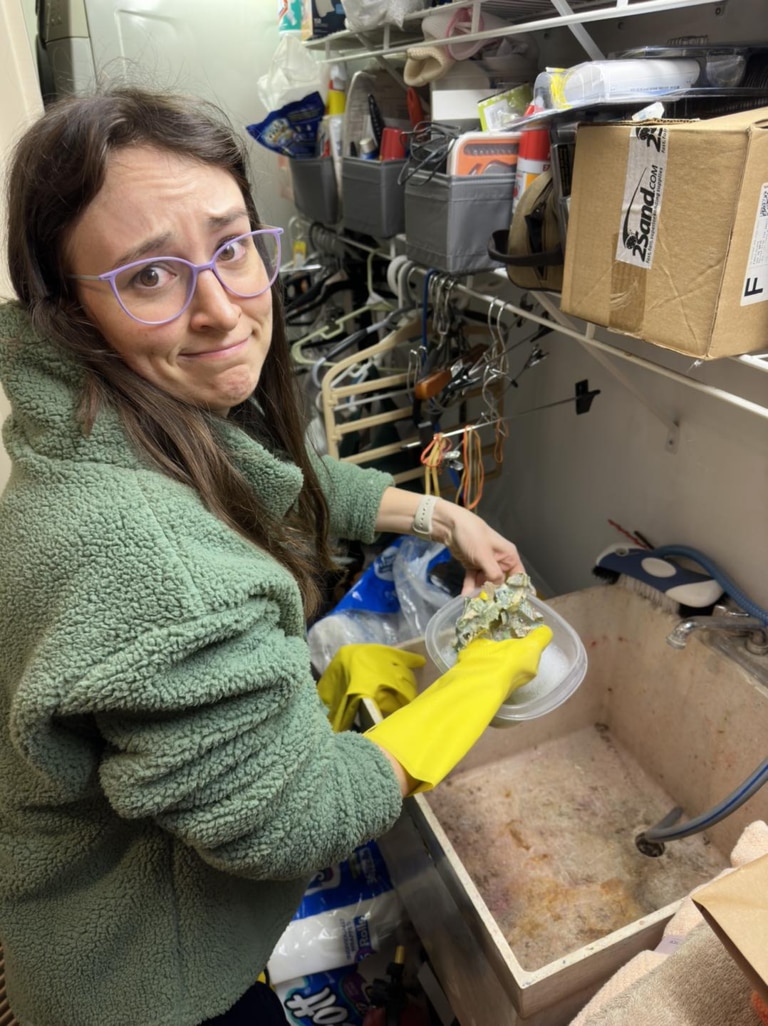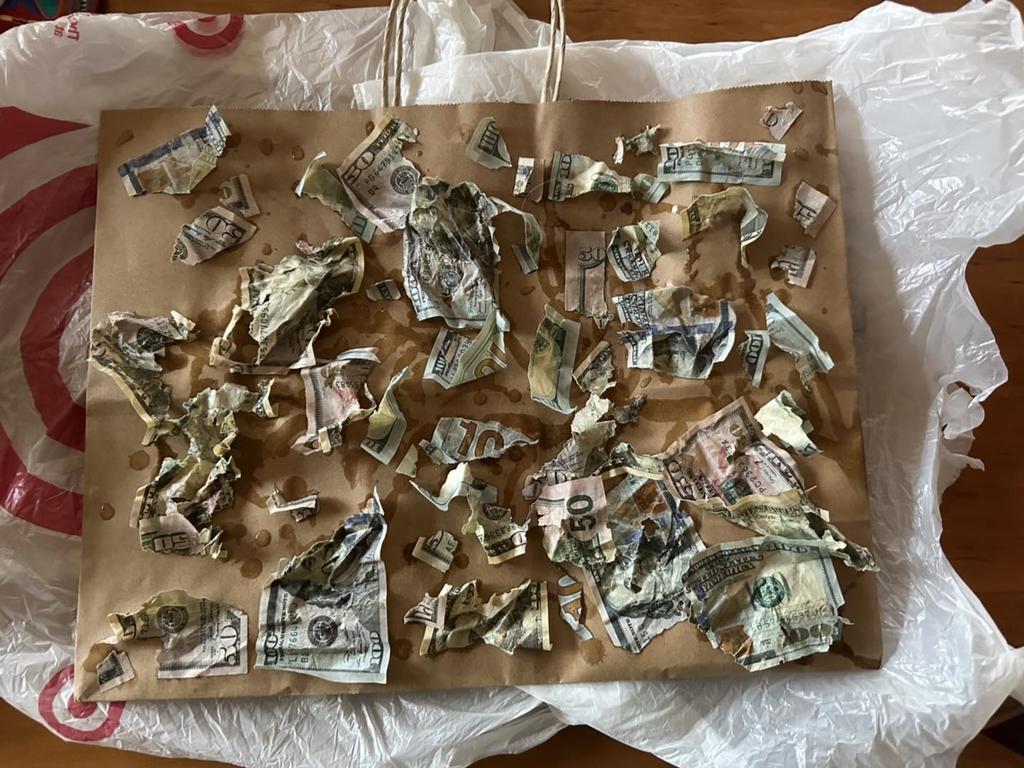Goldendoodle eats up $5,969 in cash when his owners turned their backs
In thirty minutes, one furry criminal tried to bite off more than he can chew - but couldn’t eat all the evidence.
When Clayton Law walked away from an envelope of cash for 30 minutes, he didn’t expect to find it destroyed by his dog when he returned.
He had taken $5,969 from the bank to pay for the installation of a fence, leaving it on a kitchen counter when he returned home.
But when he turned his back, family dog Cecil used the time to strike, betraying his owners who have had him for seven years.
The goldendoodle shredded up and swallowed the bills, causing Mr Law and his wife Carrie to panic.
“He has never really done anything bad before,” Mr Law recounted to the Washington Post. “So we were more shocked than angry”.
“You could leave a steak on the table, and he wouldn’t touch it because he’s not food motivated … but apparently he is money motivated,” Ms Law said.

After calling their vet, they were told that Cecil was large enough that swallowing some money wasn’t going to harm him, so long as he was still eating and relieving himself.
Making the best of a bad situation, the couple filmed their recovery of the cash and posted the story to Instagram.
“The remaining scraps will be our most expensive piece of art,” they joked.
Reporter Jessica Guay of KDKA later visited them, posting several photos taken by her team and provided by the family onto Facebook.
An image of Cecil, looking unconcerned with the financial damage he had caused, made people online contest his guilt.
“The look on his face proves he didn’t do it!” one user said, fighting for the innocence of the pet. Others sympathised with him despite his criminal history, saying “he’s worth every dollar he chewed!”


The family didn’t expect the dog to commit such a crime - but hounds are more devious than you would expect.
“The bank assures us this happens all the time,” Ms Law wrote on her Instagram post, and a TikTok user who claimed to be a banker said it was possible to salvage the cash.
“You only need more than 50 per cent of each bill for it to be considered replaceable”, they said.
From the scraps Cecil had left uneaten and what they could salvage from his poor digestion, they scrubbed and cleaned as much money as they could to present to the bank.
“I never thought I’d be able to say I’ve laundered money,” Ms Law said, “but there is apparently a first time for everything.”
The final total amount they were able to regain was US$3,550 ($5,301).

Somehow, Cecil has evaded the long arm of the law, happy and healthy in the arms of the Laws.
“We couldn’t be mad at him,” Ms Law said. “He’s a very loveable dog … people often tell us there’s a human trapped inside our dog.”
If Cecil had been human, he could be liable for the deliberate damage of currency.
In Australia, this can result in a punishment of a $5000 fine, two years in prison, or both.
Fortunately for Cecil, research suggests he is likely not a human in disguise.
While all seems forgiven in the family, Cecil remains at large, able to strike should the family ever again let their guard down around their cash.





